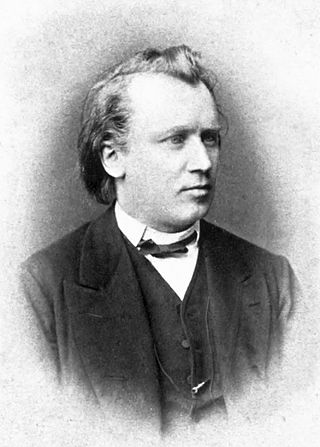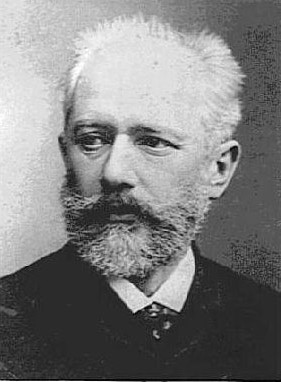Related Research Articles
The Symphony No. 10 in E minor, Op. 93, by Dmitri Shostakovich was premiered by the Leningrad Philharmonic Orchestra under Yevgeny Mravinsky on 17 December 1953. It is not clear when it was written. According to the composer, the symphony was composed between July and October 1953, but Tatiana Nikolayeva stated that it was completed in 1951. Sketches for some of the material date from 1946.

The Symphony No. 6 in B minor, Op. 74, also known as the Pathétique Symphony, is Pyotr Ilyich Tchaikovsky's final completed symphony, written between February and the end of August 1893. The composer entitled the work "The Passionate Symphony", employing a Russian word, Патетическая (Pateticheskaya), meaning "passionate" or "emotional", which was then translated into French as pathétique, meaning "solemn" or "emotive".
Symphony No. 12 in D minor, Op. 112, titled The Year 1917, was composed by Dmitri Shostakovich in 1961. He dedicated it to the memory of Vladimir Lenin. Although the performance on October 1, 1961, by the Leningrad Philharmonic Orchestra conducted by Yevgeny Mravinsky was billed as the official premiere, the actual first performance took place two hours earlier that same day in Kuybyshev by the Kuybyshev State Philharmonic Orchestra conducted by Abram Stasevich.

The Symphony No. 8 in G major, Op. 88, B. 163, is a symphony by Antonín Dvořák, composed in 1889 at Vysoká u Příbramě, Bohemia, on the occasion of his election to the Bohemian Academy of Science, Literature and Arts. Dvořák conducted the premiere in Prague on 2 February 1890. In contrast to other symphonies of both the composer and the period, the music is cheerful and optimistic. It was originally published as Symphony No. 4.

Nikolai Yakovlevich Myaskovsky, was a Russian and Soviet composer. He is sometimes referred to as the "Father of the Soviet Symphony". Myaskovsky was awarded the Stalin Prize five times.

Ludwig van Beethoven completed his String Quartet No. 12 in E♭ major, Op. 127, in 1825. It is the first of his late quartets. Commissioned by Nicolas Galitzin over a year earlier, the work was not ready when it was scheduled to premiere. When it was finally premiered by the Schuppanzigh Quartet, it was not well received. Only with subsequent performances by the Bohm Quartet and the Mayseder Quartet did it begin to gain public appreciation.

The Symphony No. 7 in C major, Op. 105, is a single-movement work for orchestra written from 1914 to 1924 by the Finnish composer Jean Sibelius.

Symphony No. 2 in D major, Op. 73, was composed by Johannes Brahms in the summer of 1877, during a visit to Pörtschach am Wörthersee, a town in the Austrian province of Carinthia. Its composition was brief in comparison with the 21 years it took him to complete his First Symphony.

Pyotr Ilyich Tchaikovsky's Symphony No. 3 in D major, Op. 29, was written in 1875. He began it at Vladimir Shilovsky's estate at Ussovo on 5 June and finished on 1 August at Verbovka. Dedicated to Shilovsky, the work is unique in Tchaikovsky's symphonic output in two ways: it is the only one of his seven symphonies in a major key ; and it is the only one to contain five movements.
Sergei Prokofiev's String Quartet No. 2 in F Major, Op. 92 (1941) was first performed by the Beethoven Quartet in Moscow on 7 April 1942. A later concert in Moscow, on 5 September 1942, was delayed by a Nazi air raid and started late. Prokofiev thought it "an extremely turbulent success." The string quartet, lasting for 20–25 minutes, is in three movements.
The Symphony No. 6 in E-flat minor, Op. 23 by Nikolai Myaskovsky was composed between 1921 and 1923. It is the largest and most ambitious of his 27 symphonies, and uses a chorus in the finale. It has been described as "probably the most significant Russian symphony between Tchaikovsky's Pathétique and the Fourth Symphony of Shostakovich". The premiere took place at the Bolshoi Theatre, Moscow on 4 May 1924, conducted by Nikolai Golovanov and was a notable success.
Konstantin Saradzhev was an Armenian conductor and violinist. He was an advocate of new Russian music, and conducted a number of premieres of works by Pyotr Ilyich Tchaikovsky, Modest Mussorgsky, Igor Stravinsky, Sergei Prokofiev, Nikolai Myaskovsky, Dmitri Shostakovich, and Aram Khachaturian. His son Konstantin Konstantinovich Saradzhev was a noted bell ringer and musical theorist.
Nikolai Myaskovsky composed his Cello Concerto in C minor, Op. 66, during the years 1944–45. It ranks among the few works of the composer that are found frequently in concert or on recordings.
The Symphony No. 1 in C minor, Op. 3, by Nikolai Myaskovsky was written in 1908.
Nikolai Myaskovsky wrote his Symphony No. 9 in E minor, Op. 28, between 1926 and 1927. It was dedicated to Nikolai Malko.
Nikolai Myaskovsky wrote his Symphony No. 8 in A major, his Opus 26, between 1924 and 1925.
Nikolai Myaskovsky's Symphony No. 16 in F major, op. 39, was composed in 1935-6 and has the nickname Aviation Symphony.
The Third Symphony by Alfred Schnittke was his fourth composition in the symphonic form, completed in 1981.
String Quartet No. 1 in B-flat major "Maori Quartet", Stiles 1.2.3.3 SQ1 is the first of Alfred Hill's seventeen string quartets. Its composition began before 1892, it was completed after 1896 and premiered only on 18 May 1911 in Sydney.
Nikolai Myaskovsky's Symphony No. 5 in D Major, Op. 18, was written in 1918. It was premiered on 18 August 1920 by the conductor Nikolai Malko.
References
- ↑ "Opus by Miaskovsky". Archived from the original on 13 May 2014. Retrieved 23 January 2010.
- 1 2 "Myaskovsky: Works: Symphony No. 20" . Retrieved 23 January 2010.
- 1 2 3 Score.
- ↑ Richard Taruskin, On Russian music at Google Books, page 290.